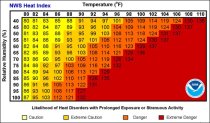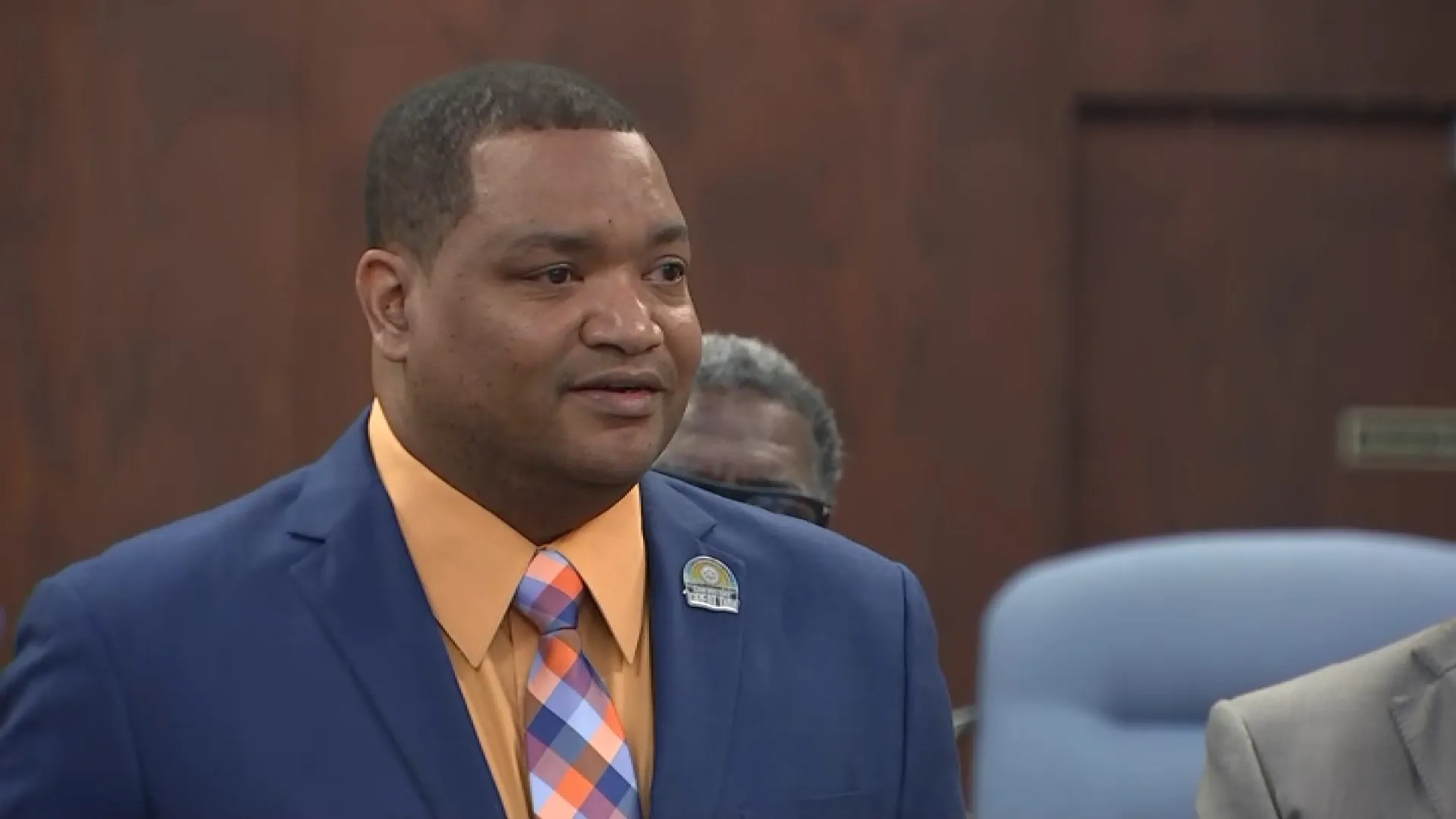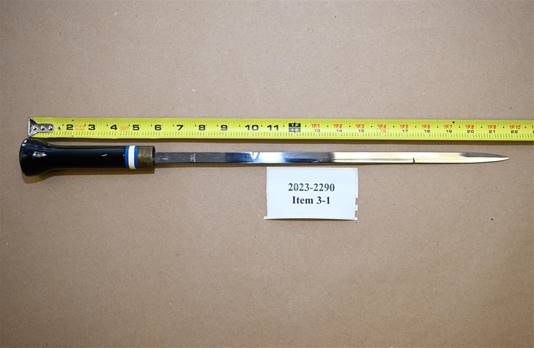SUMMER DIDN’T START VERY HOT, BUT….
By the 4th of July, summer 2016 hadn’t been very hot. The hottest day of the entire summer up to that point was a mere 92 degrees. And it wasn’t even humid. There wasn’t a single heat wave in June. The single heat wave in May was the absolute minimum: 3 straight days of exactly 90 degrees. And the warmest night up to July 4th got down to 72 degrees-an indication of just how NOT humid it had been.
Then came July 6th. More than half the days since then have been 90 degrees or above in Philadelphia! We’ve had four heat waves since then, and the humidity seems that it’s gotten higher in each one. The current heat wave, although the temperature hasn’t gotten above 98, has become deadly. And there’s more of the heat wave to come.
THE HEAT INDEX (OR “FEELS LIKE” TEMPERATURE)
We’ve all heard “It’s not the heat-it’s the humidity”. But that’s not true. It is clearly both. And there is a single number that measures the impact. Believe it or not, it was first developed by a TV meteorologist (George Winterling in 1978), who called it "humiture." I actually prefer that term, since it perfectly combines humidity and temperature. Pretty clever, George.
The National Weather Service picked up the good idea and called it the Heat Index. Some refer to it as the “Feels-like Temperature”, which can also be used in winter instead of the Wind Chill. Viewers sometimes ask me for the “formula” for calculating these terms. I always tell them: “You really don’t want to know”, and show the formula that proves it:
HI = -42.379 + 2.04901523T + 10.14333127R - 0.22475541TR - 6.83783x10-3T2- 5.481717x10-2R2 + 1.22874x10-3T2R + 8.5282x10-4TR2 - 1.99x10-6T2R2
See, you really don’t want to know. Fortunately, quick calculations can be made using sites like this or you can look at a simple table once you know the temperature and relative humidity:

Anything in the orange area is considered the “danger zone” (about 105 or higher). That’s when we see reports of heat exhaustion or heat stroke. I’ve seen Heat Index readings as high as 122 in our area. The highest I’ve ever heard about was an amazing 172 degrees F in Dhahran, Saudi Arabia.
Heat can be a killer. In July 1993, 118 people died from heat-related causes in Philadelphia. That’s the highest death toll from any weather event in our recorded history. So we take extreme heat seriously.
HOW HOT DID IT GET
On Saturday, the 13th, the heat index got up to about 112 in Philadelphia. The highest reading in our area was 122 degrees in Dover, DE. But the dewpoint reading there has seemed to be too high compared to nearby sites, so that may be a bit of a stretch.
Other top Heat Index readings were:
113 in Millville, NJ
112 at Atlantic City Airport
110 in Wilmington, DE
109 in Trenton, NJ
108 in Allentown, PA
107 in Reading, PA
HOW MUCH MORE OF THIS IS COMING?
We’re predicting highs of 95 both Monday and Tuesday. The dewpoints and relative humidity (either can be used for the calculations) won’t be quite as high as they were Saturday, so the Heat Index will be up to about 103. The problem is that the accumulation of heat is a key factor in heat-related deaths. Those brick row houses in parts of Philadelphia act like ovens without air conditioning. Fans just blow the heat around. Some people have air conditioning, but don’t turn it on because they feel they can’t afford it. When you combine that with elderly people with existing heart problems, the threat goes up even more.
Because of the above reasons, we ask that you check on the elderly during the rest of this heat wave, especially if they don’t use air conditioning. And make sure they get a break in a cool area-and with plenty of water. Of course, don’t forget about pets-they are wearing fur coats, and don’t have the luxury of turning on the AC themselves. And, of course, never leave a child in a hot car. Temperatures climb rapidly in an enclosed car on a sunny day.
After Tuesday, temperatures should drop off a bit (closer to 90 than 95), and the humidity will drop a bit. By next weekend, we could actually have highs in the 80s.
Local
Breaking news and the stories that matter to your neighborhood.
This has not been the hottest summer on record. The official temperature still hasn’t reached 100. There’s still plenty of summer to go. So far, we’ve had 30 days reaching 90+. The average for the whole summer is only 21.



